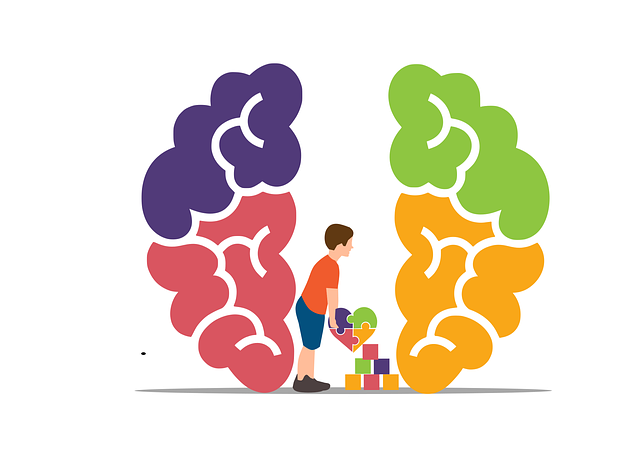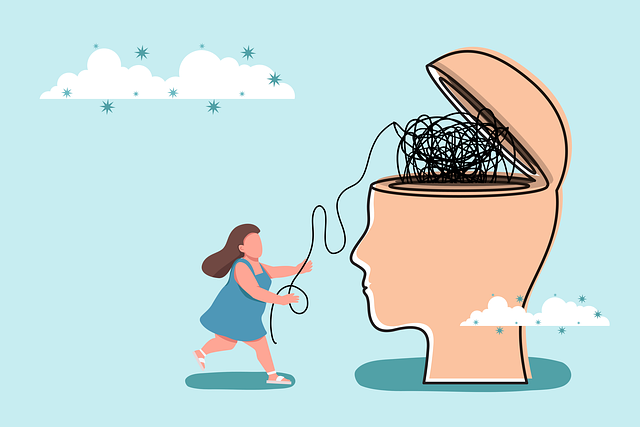Denver Crisis Counseling Therapy (DCCT) equips individuals in diverse communities with essential coping skills to navigate life's challenges and maintain mental well-being. Through evidence-based practices like cognitive-behavioral therapy and mindfulness, DCCT helps clients manage stress, overcome adversity, and build resilience. Positive thinking, relaxation techniques, social connections, and burnout prevention strategies for healthcare providers are key components of this approach, promoting proactive emotional healing and overall mental wellness.
Coping skills are essential tools for maintaining mental well-being in today’s challenging world. Understanding and developing effective coping strategies can significantly enhance our resilience to stress, anxiety, and adversity. This article explores these concepts in depth, offering a comprehensive guide to improving mental health. We delve into the significance of coping skills, provide a step-by-step development process, and highlight the empowering role of Denver Crisis Counseling Therapy in building resilience among individuals facing various challenges.
- Understanding Coping Skills and Their Significance in Mental Well-being
- Strategies for Effective Coping Skills Development: A Step-by-Step Guide
- Denver Crisis Counseling Therapy: Empowering Individuals to Build Resilience
Understanding Coping Skills and Their Significance in Mental Well-being

Coping skills are the strategies we use to navigate life’s challenges and maintain mental well-being. They play a pivotal role in Denver crisis counseling therapy, helping individuals manage stress, overcome adversity, and foster resilience. Effective coping mechanisms enable people to process emotions healthily, make sense of difficult situations, and adapt to change. When faced with traumatic events or everyday stressors, having robust coping skills can prevent the onset of mental health issues and promote positive psychological outcomes.
The development of these skills is particularly crucial in diverse communities, where cultural sensitivity in mental healthcare practice is essential. By understanding and incorporating culturally relevant coping strategies into public awareness campaigns development, we can ensure that support systems are inclusive and accessible to all. Emotional regulation, a key component of coping, becomes even more vital when considering the impact of societal pressures and individual differences on mental health.
Strategies for Effective Coping Skills Development: A Step-by-Step Guide

Developing effective coping skills is a powerful tool for navigating life’s challenges and fostering mental wellness. Here’s a step-by-step guide to help individuals cultivate healthier ways of dealing with stress, anxiety, or difficult emotions.
1. Identify Triggers and Emotions: Start by becoming aware of the situations, people, or thoughts that set off strong emotional responses. Recognize and label these triggers. For instance, if certain conversations tend to leave you feeling anxious, identifying this pattern is the first step. Understanding your emotions allows for better management, enabling individuals to say, “I recognize I’m feeling overwhelmed in this moment, and I will handle it constructively.”
2. Practice Positive Thinking: Cultivating a positive mindset can significantly impact coping abilities. Encourage yourself with affirmations, reframe negative thoughts into more realistic and constructive ones, and focus on solutions rather than problems. This strategy is often emphasized in Denver Crisis Counseling Therapy, promoting a shift from reactive to proactive emotional healing processes.
3. Explore Relaxation Techniques: Deep breathing exercises, meditation, yoga, or progressive muscle relaxation are powerful tools for calming the mind and body. These practices help reduce stress response and create a sense of tranquility. Regularly incorporating these techniques into your routine can enhance overall mental wellness, making it easier to cope with life’s curveballs.
4. Engage in Physical Activity: Exercise releases endorphins, which are natural mood lifters. Activities like walking, running, dancing, or team sports not only improve physical health but also provide an outlet for emotional expression and stress release. Consider joining a local fitness group or following a mental wellness podcast series production focused on movement and mindfulness to stay motivated.
5. Connect with Others: Social connections are vital for emotional support and coping resources. Build a strong support network by reaching out to friends, family, or support groups. Sharing your feelings and experiences can provide different perspectives and help you feel understood. Remember, it’s okay to ask for help; seeking assistance is a sign of strength.
Denver Crisis Counseling Therapy: Empowering Individuals to Build Resilience

Denver Crisis Counseling Therapy (DCCT) is a specialized service designed to empower individuals facing personal crises and challenges. Through evidence-based practices, DCCT focuses on building resilience and fostering coping skills that can navigate through life’s most difficult moments. This therapy offers a safe space for clients to process their emotions, gain insights into their experiences, and develop strategies to manage stress effectively. By integrating various therapeutic techniques, such as cognitive-behavioral therapy and mindfulness exercises, DCCT equips individuals with the tools necessary for self-awareness, emotional regulation, and overall mental well-being.
One of the key aspects of Denver Crisis Counseling Therapy is its emphasis on burnout prevention strategies, particularly for healthcare providers who often face high-stress environments. By incorporating stress management techniques into their therapeutic approach, DCCT helps individuals recognize signs of exhaustion, set healthy boundaries, and maintain work-life balance. These self-awareness exercises are crucial in preventing long-term mental health issues and promoting a more sustainable and fulfilling lifestyle.
Coping skills development is a powerful tool for enhancing mental well-being, as demonstrated by Denver Crisis Counseling Therapy’s effective strategies. By understanding and cultivating these skills, individuals can navigate life’s challenges with resilience and adaptability. The step-by-step guide provided offers a practical framework for personal growth, empowering folks to take control of their emotional health. Through accessible resources like Denver Crisis Counseling Therapy, anyone can learn to manage stress, overcome adversity, and foster a sense of calm amidst the chaos.














